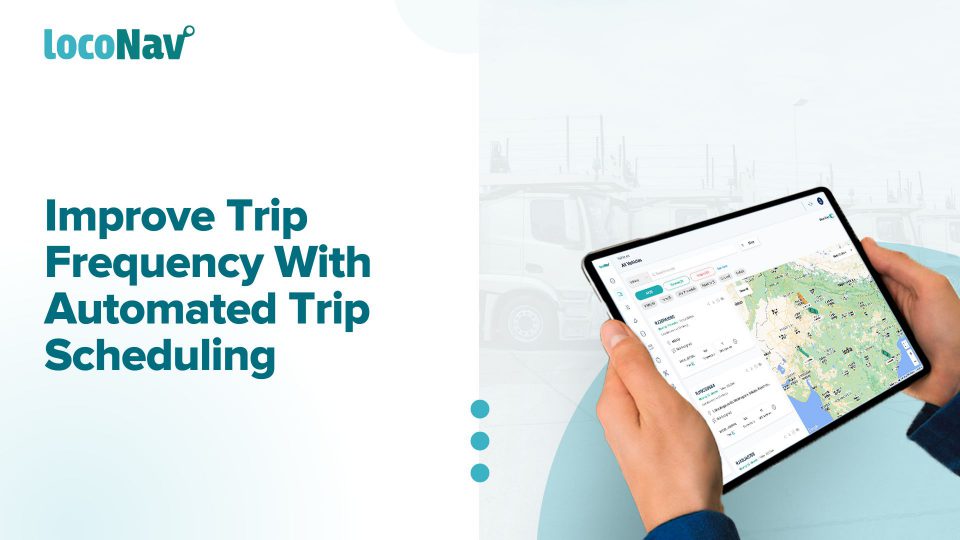

The most tedious and routine duty for a fleet manager is manual trip scheduling and vehicle assignments. This is a time-consuming and labor-intensive task that frequently results in inaccuracy and scheduling problems. Such mistakes can cost your organisation time, money and reputation by compromising the client experience, as well as lead to a loss in revenue owing to the low utilisation of your fleet.
Modern fleet businesses have complicated workflows. Each item in this workflow has various dependencies. Modifications or changes in any one trip-based factor (driver, vehicle, route) might set off a sequence of events. An automated trip scheduling system considers all variables and factors linked to each journey and makes the appropriate interventions.
For example, when maintenance is planned on any vehicle, the system automatically warns the fleet manager of any downtime, and it includes provisions for the maintenance of all linked assets.
Let us look at some of the advantages of automated trip scheduling. From receiving unique insights on factors that influence the transportation of your shipment to increasing operational efficiency. An automated trip scheduling system provides benefits that go beyond enhancing your bottom line, from administrative visibility to offering your drivers the power of choice.
Manage your fleet efficiently with LocoNav’s Fleet Management Solutions!
Empower Your Driver Force
Fleets may empower their drivers by allowing them to change their own Hours of Service or break times and locations. This can be done via a standalone app or mobile API interface with an existing driver workflow app. This boosts their job happiness on the road by not trying to control where and when they stop – instead, allowing drivers to do what they do best: drive.
Enhance Customer Experience With Precise Trip Updates
ETA prediction based on actual incidents on the road also helps fleets make sensible and preventative decisions. This allows them to keep their clients informed and updated with specific pick-up or drop-off time frames.
Fleets can gain a market advantage by having access to dynamically changing ETAs, which allows them to make more informed decisions and keep up with the competition. This is especially critical in a market where client happiness and transparency may make or break your business.
With the capacity to share realistic, exact ETAs, they can reduce the frequency of calls to drivers to acquire those updates. They can also minimise the number of calls from inquisitive customers resulting in better customer service.
Increase Your Fleet’s Operational Efficiency
Even with the most perfect planning, fleet managers can’t predict a driver’s route preferences or the judgments they make throughout a trip. Do they need to take an unplanned break? Take a break sooner than planned? Are they choosing a different rest area or fueling station? Finding secure parking?
Consider the benefit of having a 360-degree picture of your drivers’ actions and reactions. Automated trip scheduling provides unrivalled transparency and allows fleet managers to make critical choices based on real-time situations. With complete trip visibility, you can stay ahead of service breakdowns, make better use of your assets, increase trip frequency, and manage future trips.
Key Takeaway
Trip scheduling for a small fleet is a difficult enough task. But enterprises with large-scale fleet operations dispersed over multiple geographies and/or managing more than one type of vehicle have additional scheduling challenges. For such fleet businesses, automated trip scheduling is the only practical option. Automated trip scheduling algorithms take into account service areas, driver capabilities, and vehicle performance metrics to provide a comprehensive trip scheduling strategy across all these multiple areas.
The majority of fleet operations are a combination of planned and emergency work, with the latter primarily disturbing previously scheduled trips. An automated trip scheduling system classifies trips as planned or emergency and assigns a level of importance to each trip.
